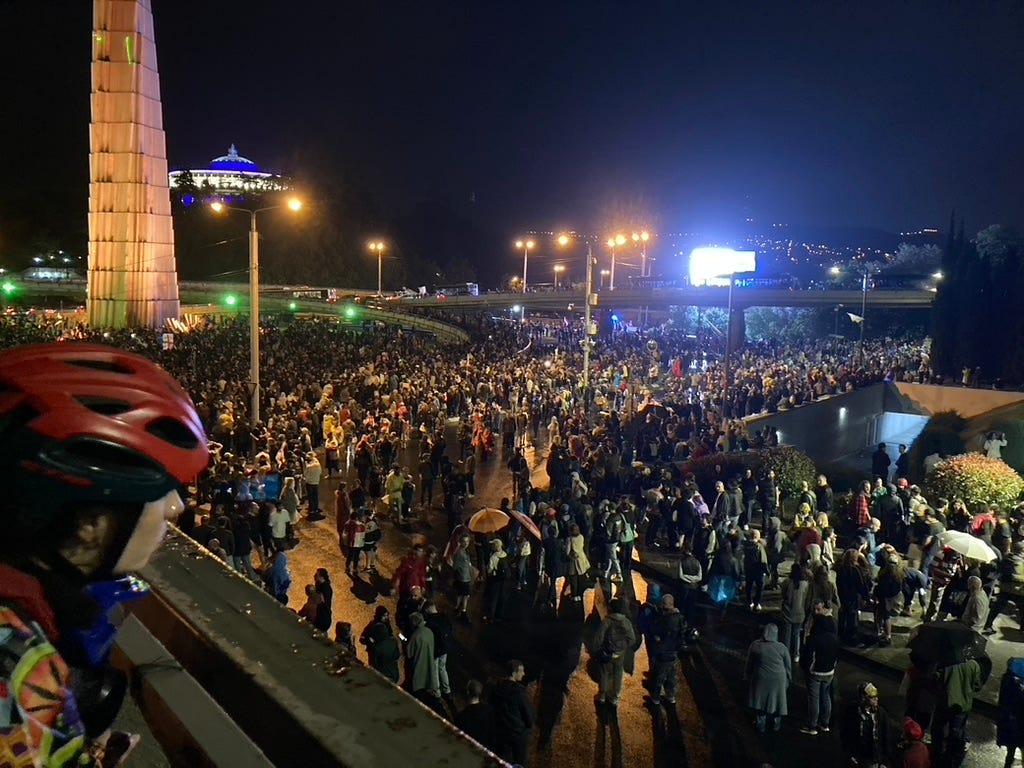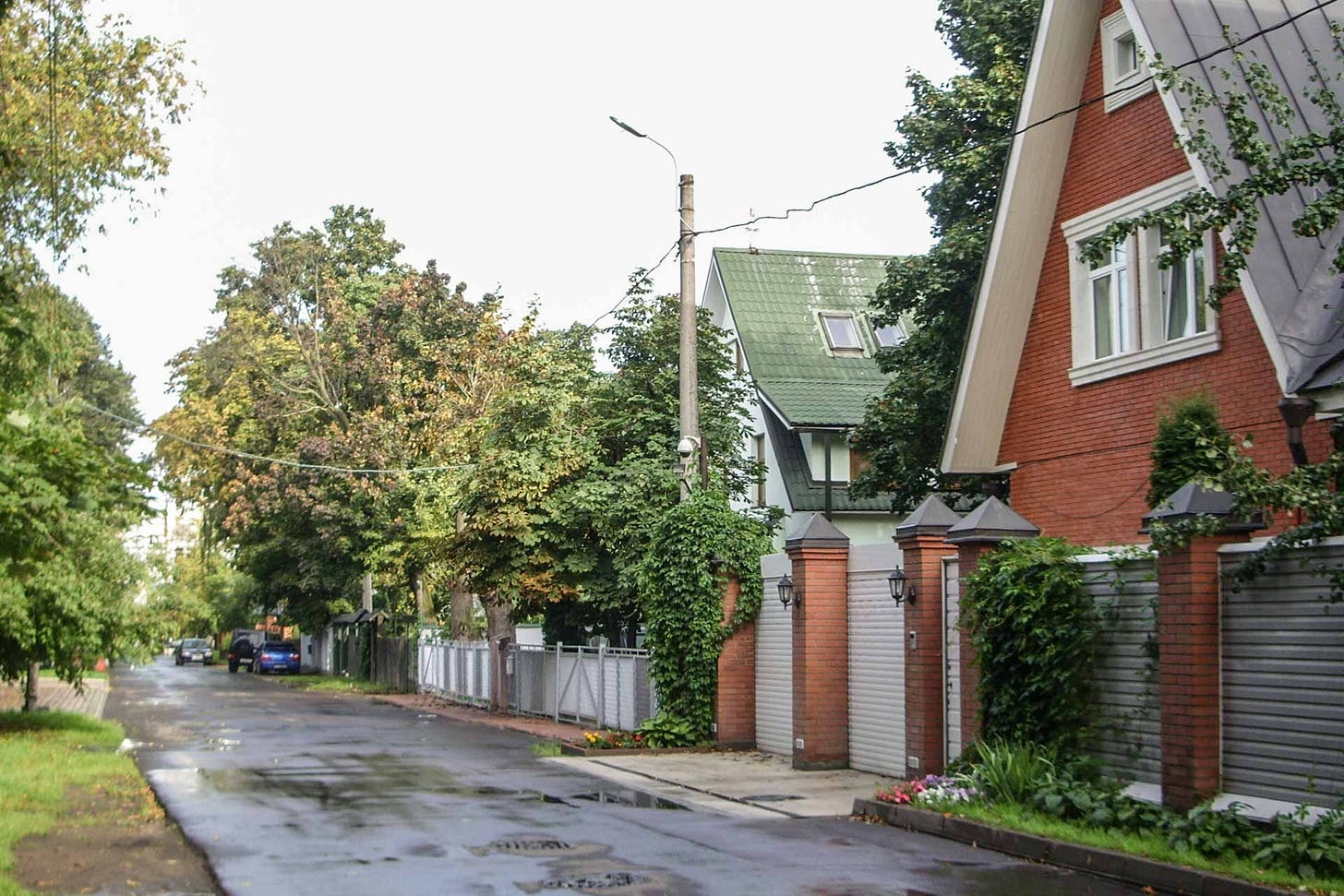
OFAC yesterday sanctioned Georgian politician, oligarch, and Putin puppet Bidzina Ivanishvili pursuant to the Russian Harmful Foreign Activities Sanctions authority (EO 14024), which also carries with it a secondary sanctions risk.
That’s the good news.
The bad news is that once again the Biden administration de-fanged the designation by issuing a general license (GL 116) that authorizes transactions that involve any entity that is blocked solely because Ivanishvili owns it—even if he owns 50 percent or more of the company—provided that such an entity is not specifically listed on OFAC’s specially designated nationals (SDN) list.
Why bother sanctioning Ivanishvili, if you’re going to allow transactions with his companies?
What does this general license mean?
Let me explain.
As a recap, sanctions are legal measures that impose economic costs on targets via asset freezes, financial prohibitions, travel bans, and other means. Sanctions can include individuals, entities, and organizations.
Not all entities owned by sanctioned individuals appear on the SDN list, but firms and financial institutions, that are 50 percent or more owned by a sanctioned person are considered designated. We call them “shadow SDNs.” Any entity owned in the aggregate—directly or indirectly—by one or more SDNs is sanctioned by force of law, even if they’re not specifically listed.
What OFAC has done is sanction Ivanishvili, include him on the SDN list pursuant to EO 14020, but allow money from shadow SDNs he may own or have a 50 percent or more interest in, to continue flowing into his corrupt pockets.
Ivanishvili is involved in numerous ventures, which make his designation a shrug. He’s involved in wineries, hotels and banking, as well as private equity fund, The Georgian Co-Investment Fund, that has interests in energy, agriculture, real estate, infrastructure, and other sectors.
Hmmmmm.
So once again, the United States pays lip service to sanctions - lip service to supporting democratic institutions and lip service to punishing those involved in egregious human rights violations while supporting Russia. Once again, the full weight of US designations is not used.
Why bother?
The purpose of sanctions is to create economic pressure on the targets that will help stop the behavior that got them designated, deprive them of economic resources to engage in said behavior, and respond to aggression or erosion of democratic processes, human rights violations, corruption, and other forms of illicit activity.
Cut them off—or even threaten to sever them—from the US (and the global financial system), and all of a sudden they start to fall in line.
When Barack Obama was president, he unwound almost all sanctions against Cuba because of legislative changes on the island nation. After Donald Trump became president, he reinstituted many of the sanctions programs against Cuba, including redesignating the country as a “state sponsor of terrorism” before he left office.
OFAC in 2018 removed sanctions against Colombia’s Envigado Futbol Club S.A. after it severed ties to a group involved in international drug trafficking and other criminal activities.
The threat of secondary sanctions is an effective one. Media reports in January confirmed that at least two state-owned banks in China began reexamining their relationships with Russian entities, and financial institutions in Türkiye were also increasing their scrutiny of transactions linked to Russia.
So if you remove the incentive to change behavior by allowing transactions that continue to give your companies access to the US dollar and the global financial system and allow you to continue profiting, will you honestly change your behavior?
What’s happening in Georgia?
Georgia’s October parliamentary elections were widely disputed amid reports of voter manipulation, which saw the Georgian Dream—the party closest to Russia and Vladimir Putin—secure a surprise majority, despite exit polls giving the opposition a 10 percent lead. Accusations of violence, voter intimidation, and election manipulation saw the Georgian people take to the streets in protest, especially after Georgian Dream decided to halt talks to enter the EU for
Georgia’s president, Salome Zourabichvili, called the Russian meddling in her country’s election a “Russian special operation,” refusing to acknowledge its legitimacy.
Georgian Dream refused to meet with parliamentarians from eight EU countries following the disputed elections. The senior-level politicians from France, Germany, Poland, Sweden, Finland, and the Baltics flew to Tbilisi for talks after the contested vote, they basically gave the visiting delegation the middle finger. The EU delegation’s response put the bloc even further in the corner of Georgia’s pro-western leaders.
Speaking at a press conference alongside the country’s independently-elected, pro-Western president, Salome Zourabichvili, German foreign affairs committee chair Michael Roth declared that “the elections were not free and fair” and said the trip was designed to “express solidarity with the majority of Georgian citizens who are reaching for EU membership.”
In a statement yesterday, Secretary of State Antony Blinken reiterated that Georgian Dream’s and its founder Ivanishvili’s actions “have eroded democratic institutions, enabled human rights abuses, and curbed the exercise of fundamental freedoms in Georgia.”
Furthermore, they have derailed Georgia’s Euro-Atlantic future, a future the Georgian people overwhelmingly desire and the Georgian constitution mandates. The result has left Georgia vulnerable to Russia, which continues to occupy more than 20 percent of Georgia’s territory.
Yes, let’s not forget that. Russia in 2008 waged a war against Georgia, backing the separatist regions of South Ossetia and Abkhazia, displacing nearly 200,000 people, committing human rights abuses, committing war crimes against the Georgians, and continuing to control the territory it invaded.
Sound familiar?
Before the contested parliamentary elections, Georgian Dream was accused of attempting to turn the country away from the West via the introduction of a law that will force NGOs and media outlets receiving funds from abroad to register as “foreign agents.”
Sound familiar?
A similar law in Russia since 2022, when it was implemented, has been used to target independent activists and journalists. The law expanded the definition of “foreign agent” to almost any person or entity, regardless of nationality or location, who engages in civic activism or even expresses opinions about Russian policies or officials' conduct, excluding “foreign agents” from key aspects of civic life.
The government’s repeated efforts to advance the law stirred intense protests and aggressive police crackdowns in the capital, Tbilisi, first in 2023 and again this spring.
Ivanishvili made his fortune playing in the Russian cesspool. He accumulated billions of dollars in Russia and used that wealth to gain influence after he returned to Georgia. He became prime minister in 2012, and after a year, he claimed to have left politics.
Except he didn’t.
He is the founder and chairman of Georgian Dream.
Three of the last four prime ministers of Georgia were former managers of his companies.
Georgia's Interior Minister is Ivanishvili’s former bodyguard.
The country’s former health minister was Ivanishvili’s wife's dentist, and one of the country’s education ministers one of his children's tutors.
Quite a bit of nepotism is going on there.
Ivanishvili claims he ended his business dealings in Russia, but did he?
In 1996, Ivanishvili became part of the Semibankirschina—a group that financed the reelection of Boris Yeltsin as Russian president. At the time, Yeltsin’s approval rating stood at just 3 percent, according to the European Council on Foreign Relations, and Ivanishvili’s mission in this group was to finance the electoral campaign of Alexander Lebed—an artificial candidate positioned to split the vote for Communist leader Gennady Zyuganov, so the communists wouldn’t regain power in Russia.
So Ivanishvili’s legacy of election interference started back then.
When he became Georgia’s prime minister in 2012, he painted himself as severing his Russia links. But the fact that he managed to quickly sell his Russian assets at market price and that he was free to continue doing business in Russia raises doubts that he was truly free of the Kremlin’s influence.
In addition, the Organized Crime and Corruption Reporting Project (OCCRP) in August wrote that Ivanishvili’s family still owns plenty of Russian assets.
Do you know what one of the most effective methodologies sanctioned oligarchs use to keep control of their assets is? The use of close associates and family members.
…reporters have found that Ivanishvili’s wife has continued to expand her personal holdings in Russia, making a new acquisition as recently as this year. Her previously unreported assets consist of a second home and two adjacent plots of land near Peredelkino, an elite dacha settlement outside Moscow. A company linked to Ivanishvili owns another 2.7 hectares of adjacent land.
Based on the prices of comparable properties, reporters estimate all of this real estate to be worth at least $14.7 million in total.
Ivanishvili declared his family’s first Russian residence — a large house in an upscale Moscow district once home to painters and artists — in a 2013 asset filing, when he was prime minister. It is registered to his wife, Ekaterine Khvedelidze, and son, Uta Ivanishvili.

Let’s also note that the house is now being rented out, according to OCCRP, with the profits going to Khvedelidze through a sanctioned Russian bank.
Anticorruption NGO Transparency International’s Georgia chapter revealed in 2022 that Ivanishvili continues to own and control Russian assets.
While Ivanishvili did sell those assets that were directly in his name in Russia, TI Georgia found that he continued to own at least 10 Russian companies through offshore entities in 2012-2019, which further branched out into an even wider network of subsidiaries. As of today, Ivanishvili owns at least 1 company in Russia (Aqua-Space Ltd) through one of his offshore companies. In other words, Ivanishvili has, in fact, misled the public about his Russian assets.
Bidzina Ivanishvili's relatives also do business in Russia, with family members of former and current high-ranking Russian officials no less. These companies should also be considered part of Ivanishvili's broader business interests for reasons outlined below. While these connections have been previously reported in Georgian media (TV Pirveli, Formula), the news here is that one of the Russian business partners was recently sanctioned by the US.
More specifically, through a company called Geo Organics, Bidzina Ivanishvili’s brother Alexander Ivanishvili and cousin Ucha Mamatsashvili do business with a US-sanctioned former KGB general and Governor of St. Petersburg Georgy Poltavchenko, and also with former high ranking official of Volgograd Roland Kherianov, whose wife is a former member of the State Duma Anna Kovichko, author of the infamous propaganda video "Uncle Vova, We Are With You".
Another common way sanctioned oligarchs use to transact with Russia and other heavily sanctioned countries and individuals is through the use of offshore shell companies. The use of these entities affords them a convenient way to hide their involvement in transactions.
So when firms and financial institutions do their due diligence on possible clients, business partners, and transactions, they have at the very least three red flags that should trigger additional due diligence: family members, close associates, offshores and shell structures.
But since OFAC has issued a general license telling firms and financial institutions that they’re safe from sanctions if they transact with companies that are not included on the SDN list, but are still owned by Ivanishvili, they don’t have to worry about bothering with the enhanced due diligence.
They have a license.
So why bother including Ivanishvili, who is clearly connected to Russia, on the SDN list? His designation barely hurts him. Money is still flowing into his pockets. The Georgian Co-Investment Fund is not on the SDN list, and therefore, firms and financial institutions are free to transact with it, pouring resources into Ivanishvili’s pockets and allowing him the resources to do just what he’s been doing: selling his country to Vladimir Putin.
Once again, the Biden administration gives lip service to opposition to the violent repression of the Georgian people by Georgian Dream Nightmare and to US support for Georgia’s democratic institutions.
We strongly condemn Georgian Dream’s actions under Ivanishvili’s leadership, including its ongoing and violent repression of Georgian citizens, protestors, members of the media, human rights activists, and opposition figures. The United States is committed to promoting accountability for those undermining democracy and human rights in Georgia.
Sure, you do.
/sarc





Grrrr...